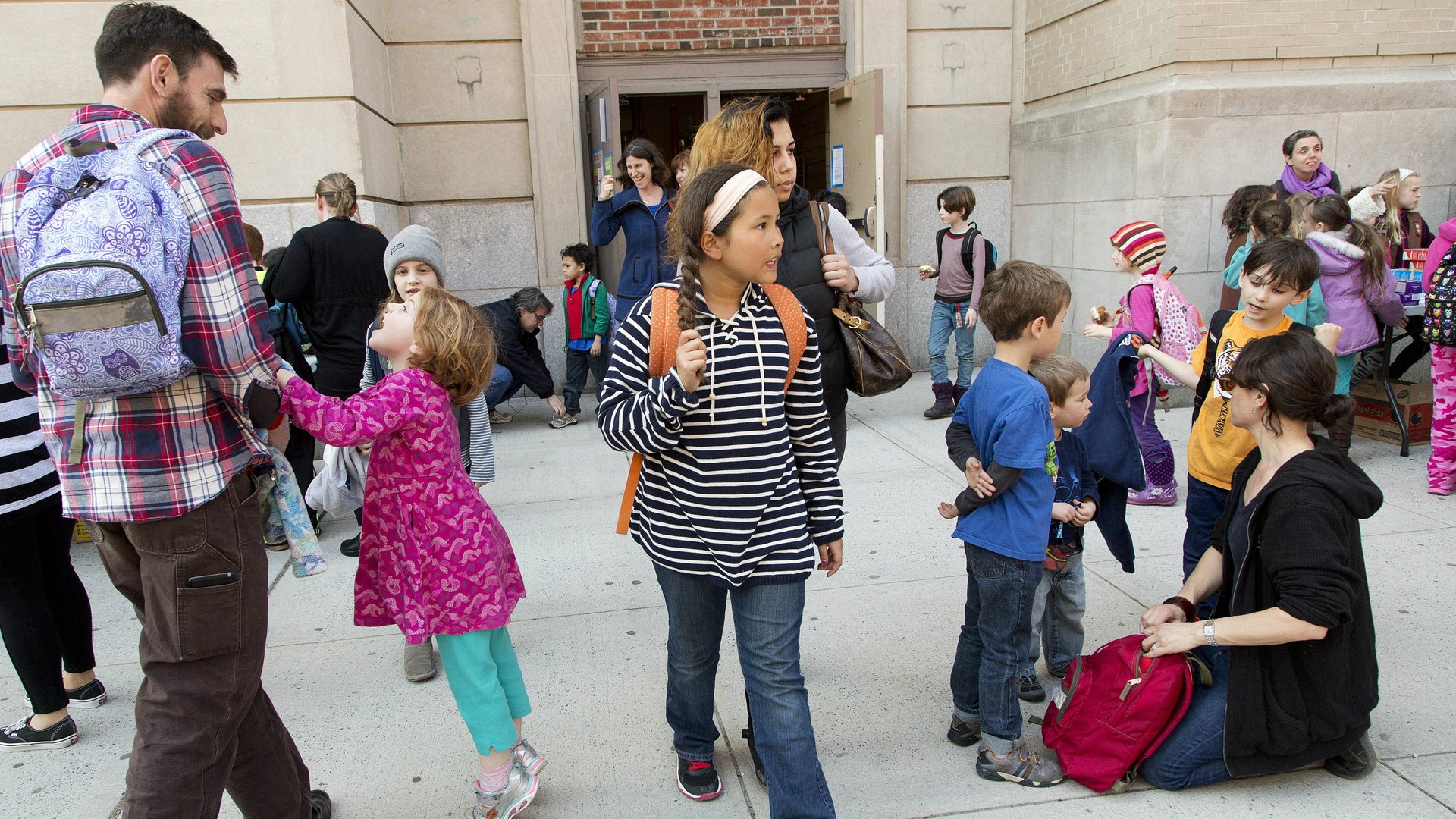Some unsolicited parenting advice from an economist: give yourself a break
One afternoon last year, a woman and her 10-year-old son sat down next to me while I was writing in a quiet Upper West Side coffee shop in New York City. She anxiously quizzed him on math and language questions, noticed me looking at them, apologized for being loud, and explained they were hours away from an admissions interview for an elite junior high school.


One afternoon last year, a woman and her 10-year-old son sat down next to me while I was writing in a quiet Upper West Side coffee shop in New York City. She anxiously quizzed him on math and language questions, noticed me looking at them, apologized for being loud, and explained they were hours away from an admissions interview for an elite junior high school.
I decided to give her some unsolicited parenting advice, “You know, he’ll be OK no matter what. Studies show being an engaged parent is the most you can do, and you clearly are.” She looked at me like I was nuts and told her son to ignore me.
The stakes of child-rearing in the US seem higher than ever in the winner-take-all economy. Why would anyone risk not giving their child every advantage?
That often means parents spend hours volunteering at their child’s school, doing their homework with them, providing constant supervision, and driving them to enrichment and sports activities.
A new paper (pdf) estimates that having a baby puts time pressure and financial stress on new moms, which is not that shocking, but it continues until their children leave home. (The study did not measure if the stress lessens when the children start school.) It’s no wonder parents are feeling so worn thin. Despite the fact that more moms in the US today work, they somehow manage to also spend more time with their children than previous generations.
Mothers only spent 10 hours a week on childcare in 1965 and 13 hours in 2000. Working moms today spend as much time with their children as stay-at-home moms did in the 1970s. Fathers spend double the time they used to with their kids in the 1970s.
The time shift may be, in part, a reflection of an economy that has become more competitive and polarized. According to sociologist Melissa Milkie, this may put more pressure on modern mothers to put in more time, hoping to safeguard their child’s status, “Mothers may now feel more responsible to ensure that a child’s economic and social status in a competitive marketplace is sustained or improved.”
But is the extra time investment worth it? Does it increase the chance your child will become a well-adjusted adult who will go on to earn multiple ivy league degrees?
According to a George Mason economist and father of four, Bryan Caplan, the time stress parents put on themselves doesn’t yield much benefit. He argues you can’t beat nature and change who your kids are meant to be. He cites studies on adoptions (pdf) and twins (pdf) that find family environment (assuming it is a safe, loving household) has little impact on intelligence and educational attainment. Caplan points out that the stress parents put on themselves these days makes kids unhappy and anxious, which may cause more harm than good. He and a small library of recent parenting books urge helicopter parents to lighten up.
To be sure, spending time with your kids is very important, but it turns out the increased time investment may not pay off in terms of tangible outcomes. Milkie thinks it comes down to quality, not quantity. Research by Amy Hsin and Christina Felfe argues that children of working moms, who spend less time with parents, turn out just as well as children of stay-at-home moms. Working mothers tend to get in the same amount of quality time. Milkie defines quality time as reading to your kids, indoor and outdoor play, and engaged conversation. Simply sitting with your kids watching TV does not yield much benefit. It’s important to be engaged and talking to each other, whether you’re reading a book or visiting a museum.
It also turns out helping your kids with their homework, attending all their activities, and joining the PTA can do more harm than good. Research from UT Austin sociologist Keith Robinson and Duke sociologist Angel Harris suggests that when it comes to homework, parents may lead kids astray. Over-involvement in school and extracurricular activities may be making kids anxious and unengaged with school.
So if you want to maximize your kids’ chance at success, what’s the best time investment you can make?
It is important to focus on quality time, not quantity, and being stressed out makes it harder to be present. Reading to your kids and enjoying the time you spend with them is important; so is setting high expectations about achievement and going to college, requesting good teachers (but not selecting classes), and living in a community that reenforces these values.
After that, give yourself a break. The best you can do is maximize your child’s potential. You can’t make someone who’s meant to be a welder into a Harvard MBA. But you can help him become a well-adjusted and productive adult.